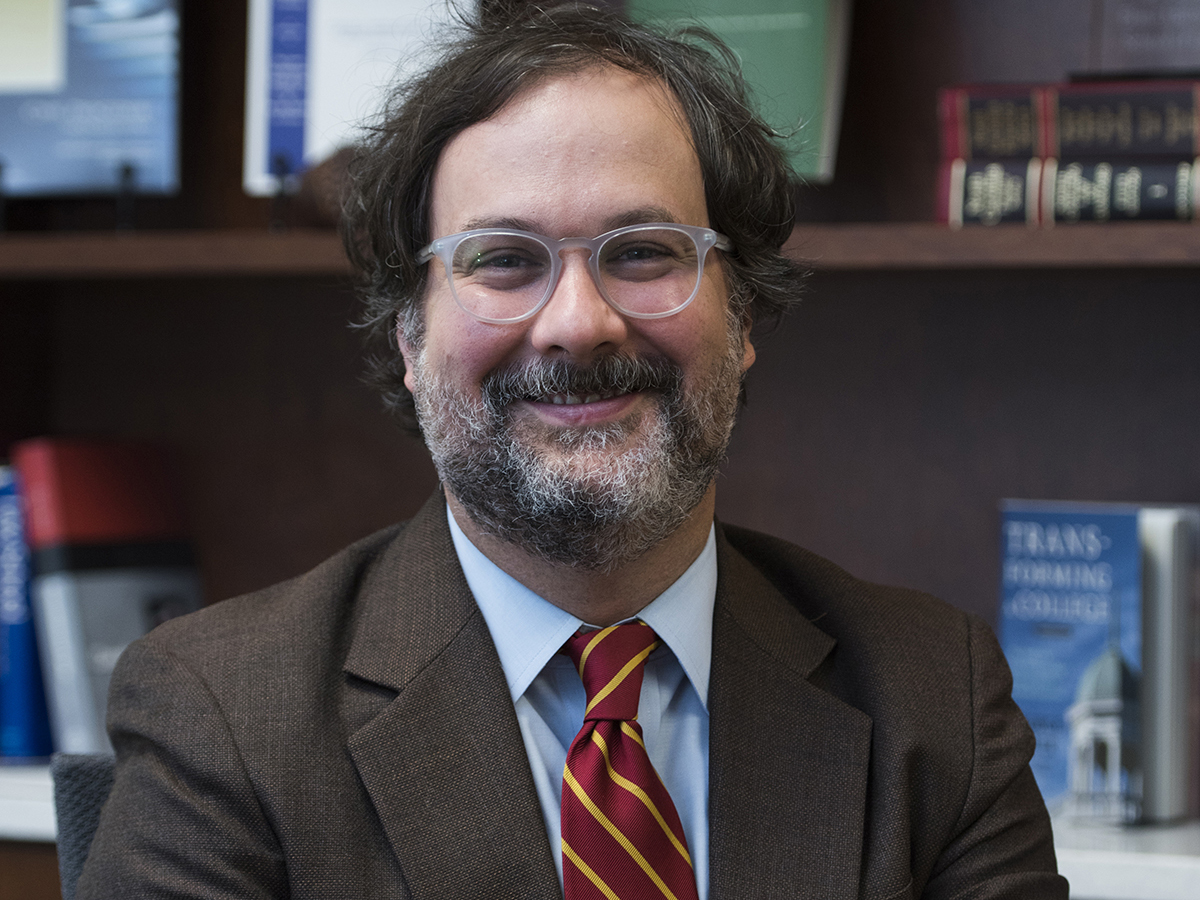A project by Professor Enrique Armijo will explore how the lies speakers provide in direct response to someone else’s lies - flooding the “marketplace of ideas” with knowingly bad information - can suppress free speech and harm underrepresented communities.
An Elon Law scholar has been named a Fellow at George Washington University’s Institute for Data, Democracy & Politics where he intends to protect historically marginalized groups harmed when authorities reply to false information in public dialogue by spreading their own lies.
Professor Enrique Armijo’s work on what he has named The Counter-lies Project also aims to help platforms like Twitter and Facebook better protect underrepresented users by moderating content based on his theory of the way this type of lying can ultimately harm free expression.
“I have been writing, teaching, and thinking about these areas for a long time,” Armijo said. “This Fellowship will permit me to bring together several issues and arguments in a way that will assist IDDP’s stakeholders, policymakers, and others that follow its work and rely on it to make policy recommendations. It will also continue to inform the free-speech-related courses that I teach.”
The underpinnings of Armijo’s work emerge from the long-held notion that lies in the public realm can be countered and ultimately unmasked by truth. In recent times, however, not all lies have been met with truth. Instead, various actors in public dialogue will use their own lies, in the words of Trump adviser and media strategist Steve Bannon that Armijo quotes in his Fellowship application, to “flood the zone with shit.”
The resulting confusion and lack of trust in government, media, or industry inevitably degrade democratic institutions and most harm those whose expressive rights are impacted by a “focus on formal equality of speakers, which in its effect subordinates the speech of marginalized and underrepresented groups.”
Finally, the Counter-lies Project will examine the idea that the government has a place to state an “official truth” when the harm by competing lies from public figures outweigh any hypothetical concerns about whether the government should intervene in the speech market.
Armijo is an Affiliate Fellow of the Yale Law School Information Society Project and the University of North Carolina-Chapel Hill Center for Information, Technology, and Public Life. He teaches and researches in the areas of the First Amendment, constitutional law, torts, administrative law, media and internet law, and international freedom of expression.
His scholarship addresses the interaction between new technologies and free speech.
Based in GWU’s School of Media and Public Affairs, the Institute for Data, Democracy & Politics aims “to help the public, journalists, and policymakers understand digital media’s influence on public dialogue and opinion, and to develop sound solutions to disinformation and other ills that arise in these spaces.”
The Institute brings together researchers from across academic disciplines, works with leading media outlets, advises policymakers in the United States and Europe, and engages with organizations that have significant societal influence and reach.



